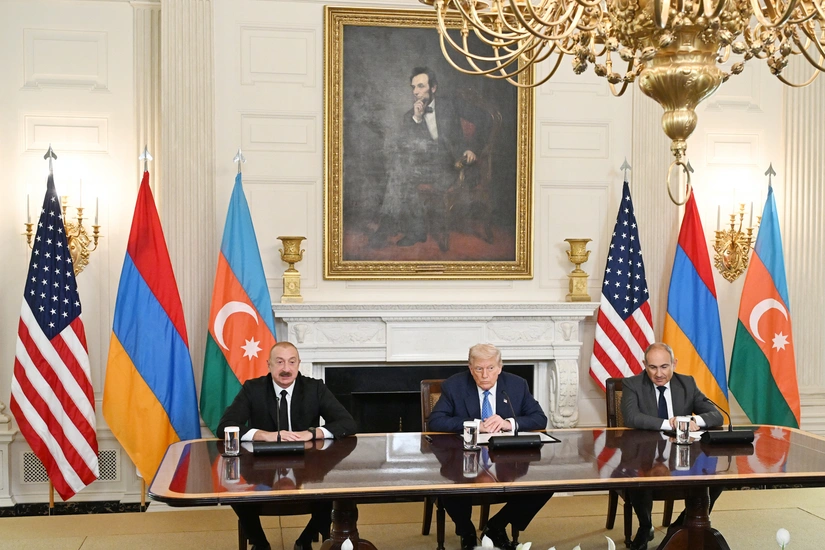Salem AlKetbi: Aliyev, Pashinyan signed agreement that may redraw maps, routes in South Caucasus
- 26 August, 2025
- 14:48

The Washington summit of the leaders of Azerbaijan, Armenia and the US and the historic agreements reached as a result are not just an ordinary event in the regional political calendar, but a turning point capable of redrawing the maps of influence and trade routes in the South Caucasus, reads an article by UAE political analyst Salem AlKetbi for Israel's Channel 7, Report informs.
"On August 8, 2025, the White House witnessed the signing of an historic agreement between Azerbaijan and Armenia, brokered by US President Donald Trump and attended by Azerbaijani President Ilham Aliyev and Armenian Prime Minister Nikol Pashinyan. The agreement stipulates the creation of a strategic corridor stretching from Azerbaijani territory to the Nakhchivan Republic through the southern strip of Armenia, continuing its path to Turkish territory and from there to Europe.
This corridor, which passes through the sensitive Zangezur region, forms part of the Middle Corridor project aimed at connecting Central Asia to the European continent without passing through Iranian or Russian territory. In truth, this agreement was not a passing event in the regional political calendar, but a pivotal milestone that could reshape maps of influence and trade routes in the Caucasus," reads the article.
Economically, the corridor is not merely a transport route but a comprehensive project including logistical facilities, customs centers, and commercial and industrial service zones, capable of stimulating vital sectors in the Caucasus.
"To be sure, the economic benefits this corridor can provide extend beyond the Caucasus. For Azerbaijan and Armenia, it is an opportunity to reposition themselves on the global trade map and open up to the markets of Europe and Central Asia.
For Europe, which has sought for years to reduce its dependence on traditional energy and transport routes, this corridor represents a new artery for economic security. In truth, Europe’s experience with the energy crisis following the war in Ukraine has made the idea of diversifying routes not a luxury but a strategic necessity impacting the continent’s economic and political security."
Observers believe that this corridor, if completed and stabilized, will significantly weaken Iranian influence, as it geographically isolates Iran from one of the most important regional transit routes and deprives it of leverage it has used for decades, according to the author.
In the broader picture, the corridor can be seen not as a transport project alone, but as a test of development’s ability to triumph over the obstacles of geopolitics. Its success would mean security and economic stability in a region long plagued by tension, transforming it into a true bridge between East and West.
 USD - 1.700
USD - 1.700 
 Azerbaijani Version
Azerbaijani Version  Russian Version
Russian Version